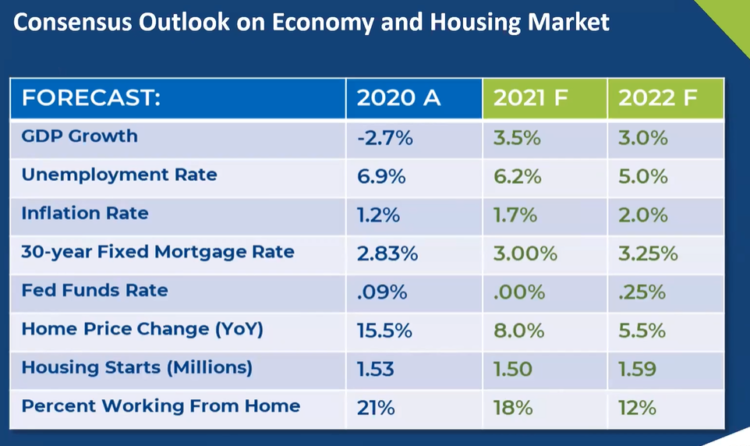
30 economists put Charlotte at No. 3 on list of cities likely to outperform
March 15. By Dave Yochum. There isn’t enough supply to meet the demand for residential real estate, although one indicator—new listings coming on the market—improved during December.
Charlotte’s real estate market is competitive, the suburbs more so.

Anita Sabates
Canopy Realtor Association data says year end 2020 closed sales volume in 2020 was 2 percent higher than 2019—this, in the middle of a pandemic.
“I have never experienced a housing market with such incredible demand,” said Anita Sabates, a veteran Realtor at Allen Tate.
Sellers in Charlotte who closed on the sale of their homes in December enjoyed an average of 99.1 percent of list price, up almost 3 percent over the same time last year when the Charlotte MSA had 45 percent more inventory for buyers to choose.
Seller’s market
Encouragingly though, December 2020 saw a pretty dramatic increase in new listings coming to market as compared to 2019—an increase of 13 percent, an upward trend that Angela Standish, branch manager for Allen Tate in Cornelius, said will continue in 2021.

Angela Standish
January new listings rose 14 percent from pre-pandemic January 2020.
Standish said there is less than a month supply of homes, down from this time last year’s already low 3-month supply.
Low inventory is not entirely due to homeowners staying put, Standish explained.
“We are in an unprecedented seller’s market and homes are selling fast,” she said.
About a month and a half of listing and sales activity evaporated during the beginning of the pandemic, but even with that lost time, our new listings taken in 2020 were close to 2019 numbers.
In the Charlotte MSA, the average home price increased 10.3% to $334,985 in 2020.
Huntersville: 10.8% increase in average sales price to $373,521.
Cornelius: 14.1% increase to $541,658.
In 2019, the Charlotte region saw 61,408 new listings. In 2020, the number was 60,486.
“Interest rates are driving first-time buyers, who have also been hit with rapidly increasing rental rates,” Standish said.
At the same time, investors, downsizing Baby Boomers, and most everyone in-between are vying for the same homes.
“In our area, not only do we have local buyers, but we also have in-migration. Buyers are relocating to our area in droves like never before due to our strong economy, beautiful weather, proximity to the beach/ mountains, major international airport, and reasonable low cost of living,” Standish said.
Behind only Phoenix and Austin
Indeed, Realtor.com’s consensus forecast of 30 economists put Charlotte at No. 3 in their Top 10 cities that are likely to outperform the overall market in 2021.

Matt Sarver
It likely means prices will continue to climb, not to mention multiple offers.
Prices in 2020 increased 15.3 percent on average, according to Matt Sarver, founder of The Sarver Group in Cornelius.
“As inventory continues to be at historical lows in 2021, prices have continued to increase and we are seeing multiple offers on every home and selling above the appraised value in many cases,” he said.
Homes with amenities including dedicated office space are in demand as people continue to work from home.
“With people working remotely and virtually, then they are able to escape urban areas and move to the suburbs and rural areas for more space and better value,” Sarver said.
Jobs mean housing demand, growth
+44,867 new jobs in the 4th quarter of 2020 alone.
+122 people move to the Charlotte area every day.
Source: Charlotte Regional Business Alliance

Discussion
No comments yet.